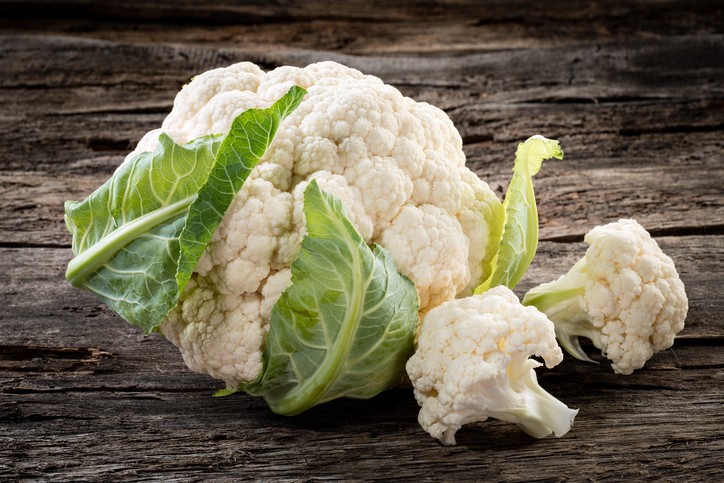
Contents
Why Cauliflower is Good for You?
Cauliflower, a nutrient-rich vegetable, is a source of fiber, antioxidants, phytonutrients, and vitamins B and C. It improves digestion, lowers cancer risk, reduces aging effects, and has other benefits.
Cauliflower is sought-after by health-conscious eaters. It’s a source of fiber, antioxidants, phytonutrients, and vitamins B and C. You can get health benefits from cauliflower by eating it raw, roasted, steamed, or fully cooked. Its low-carb nature makes it a great substitute for rice, pasta, bread, and pizza dough.
Cauliflower is an underdeveloped flower bud and a vegetable that belongs to the cruciferous family, which includes Brussels sprouts, kale, cabbage, broccoli, turnips, and other varieties.
Cruciferous vegetables like cauliflower are recommended by health experts due to their high nutrient content, including minerals, vitamins, carotenoids, soluble sugars, fibers, and antioxidants. They also lower the risk of chronic disorders.
Cauliflower comes in various colors. Green cauliflower is sweeter and more fibrous, while orange cauliflower is rich in vitamin A. Purple cauliflower contains more anthocyanins, the antioxidant that gives blueberries and eggplant their purple color.
What nutrients does cauliflower contain?
Cauliflower is rich in vitamins, minerals, antioxidants, and fiber. It provides high amounts of vitamin C, as well as vitamins A, E, K, and B vitamins. It also contains sodium, magnesium, phosphorus, potassium, and trace amounts of copper, manganese, and zinc. Cauliflower is an excellent plant-based source of choline.
Antioxidants in cauliflower include glucosinolates, isothiocyanate, sulforaphane, carotenoid, and flavonoid antioxidants. Fiber is important for gut health, and cauliflower is a good source. In terms of calories, cauliflower is low in carbohydrates compared to legumes and cereals.
What are the health benefits of cauliflower?
Cauliflower improves digestion by feeding good gut bacteria and preventing digestive issues. Its antioxidants lower cancer risk. It also reduces aging effects, prevents heart diseases, aids weight loss, improves bone health, and lowers the risk of eye disorders.
QUESTION
Is cauliflower better raw or cooked?
Boiling cauliflower leads to nutrient loss. Steamed cauliflower retains more nutrients, while raw cauliflower has the highest antioxidant activity. If you find raw cauliflower hard to digest, try sautéing it with a little water, lemon juice, or broth. You can even dip it in a healthy dip.
How often should you eat cauliflower?
Eat at least 3/4 cup of cauliflower daily, which equals almost 5 cups per week. If you tolerate it well, aim for 1.5 cups daily, or about 10 cups per week.
Are there any side effects to eating cauliflower?
Cauliflower is generally safe to eat, but those with thyroid disorders, digestive problems, or atrial fibrillation should consult a doctor or nutritionist before consuming it.
Sources: Acta Scientiarum Polonorum. Technologia Alimentaria, American Bone Health, Asian Pacific Journal of Cancer Prevention, Centers for Disease Control and Prevention, FoodData Central, Food Revolution Network, Harvard T.H. Chan School of Public Health, Molecules, Oxidative Medicine and Cellular Longevity, Penn Medicine, The World’s Healthiest Foods


